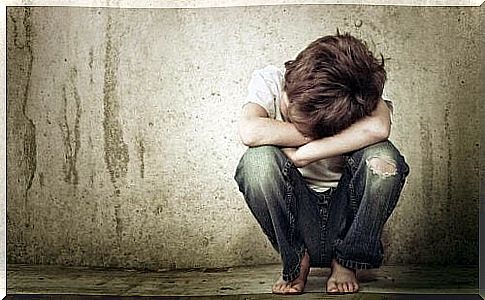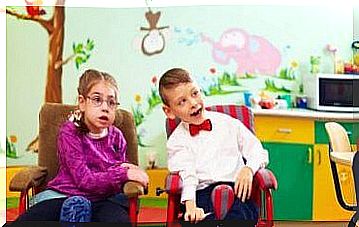Emotional Wounds Of Childhood – Being Parents

The emotional wounds of childhood are often extrapolated to adulthood as if they had just been experienced. It is therefore of utmost importance to help our children manage their emotional world and overcome their injuries. In this sense, each parent must take into account that it is a team effort.
Parents should not only be a support and guide throughout human development; they must also know how to educate with love and be aware that during this process they may have to relearn and re-evaluate many things.
In other words, when it comes to moving into the emotional world, no one has the last word. It’s about being ready to grow, to embrace change with a good mood and to seek to be better, together.
No human being is born educated let alone in behavior, reactions, feelings and thoughts. So you have to be patient with children and use emotional intelligence to help them build a stable and healthy emotional world.
The 7 most common emotional injuries
The fear of being rejected
Whether or not this fear is founded, it is based on fear of social rejection, loss of attachment figure protection, among other factors.
Separation anxiety
The fear of being separated from his parents and of feeling lonely and abandoned during childhood forms a fearful and shy adult, always in need of affection and therefore uncertain and submissive.
Humiliation
Being humiliated on a family and social level when his relatives or companions minimize his qualities and laugh at them, criticize and disapprove of them, form a shy and suffering human being, but also tyrannical and ruthless.

Injustice
Being the victim of injustices or reprimands that do not correspond to his faults makes the child uncertain, suspicious of everyone and everything. In adulthood, he can become a pessimistic and negative person who also chooses to criticize excessively those around him.
The treason
When adults don’t keep their promises they make and their expectations don’t come true, the child in question can become a distrustful and unsociable person.
But in addition to the above, there are two other emotional wounds that are also common and, whenever we consider them, you will agree with us.
Lack of affection
It is one of the most painful emotional wounds. The one who grows up stripped of affection is conditioned to be unhappy. We know that affection is as necessary as food, cleanliness or attention to illness because the brain, like the rest of the body, needs to be stimulated and provided with everything it needs.
When children are deprived of affection, they are more vulnerable to diseases of all kinds, there is a perceived delay in their physical development, they have behavioral problems, they suffer from stress and they have difficulty in their social relations.

The emotional bandon
Emotional abandonment when you are a child is another of the emotional wounds which, even if you do not want to, reach adulthood as if it were a genetic disease. Men and women who have been deprived of the closeness of their parents grow up feeling empty and unappreciated.
Emotional abandonment is a situation where parents, either because they do not have time to be with their children or because they have no affinity with them, are physically and spiritually distant from each other. ‘them.
This emotional injury is considered a type of child abuse which, like emotional deprivation, is difficult to eradicate each time the person has grown up with it. It is not uncommon for it to be a stroke that leads to depression and chronic sadness.
How do I avoid causing emotional harm to my child?
In order not to cause emotional injury to your child, we can recommend:
- Spend more time on his education by taking care of him for as long as you can and not delegating his training to others.
- Discuss the topics that interests her, debate points of view and resolve your doubts.
- Never compare him to others. If you want your child to behave like others and improve on tests, for example, encourage him to research and study.
- Deal with her fears and don’t minimize them.
- Reward him, praise him, showcase his qualities and applaud his accomplishments. It will increase his self-esteem.
- Allow time and in any case seek specialized help to deal with issues such as the death of family members, parental divorce, shyness, the truth of one’s origin (adoption), among others.
These are some tips that are well suited to the characteristics of all family nuclei. However, how not to cause emotional harm to a child is in the hands and actions of every family.









